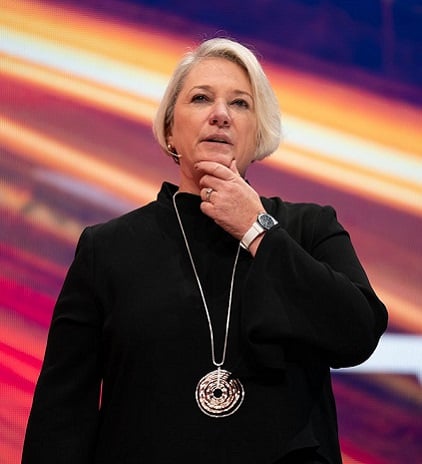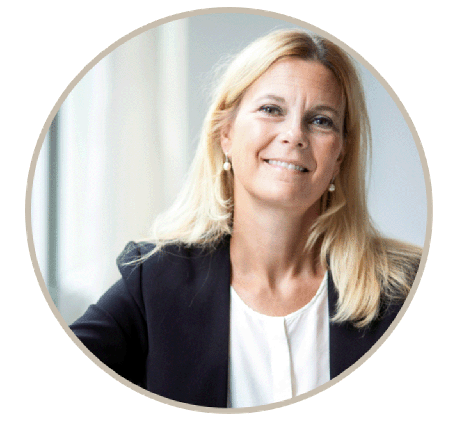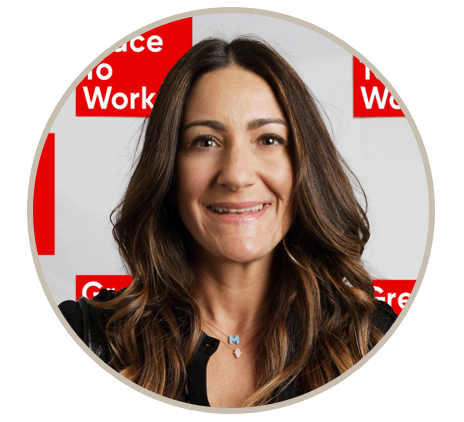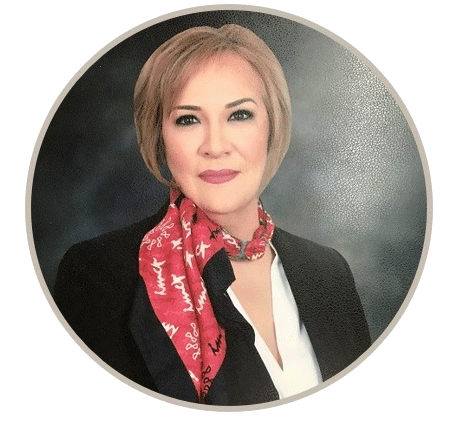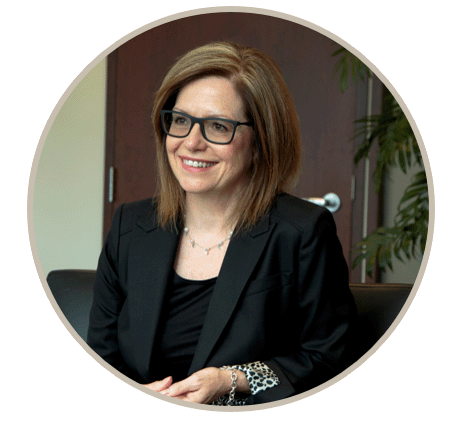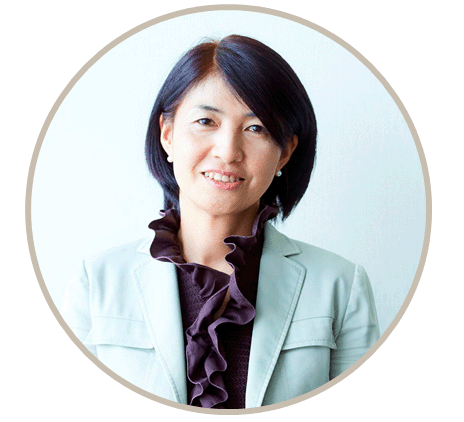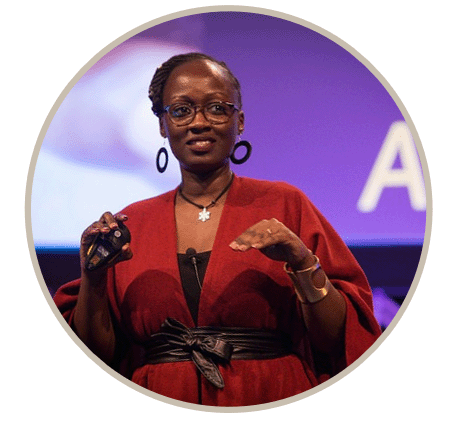-
Why Grant Thornton
Whether you’re growing in one market or many, looking to operate more effectively, managing risk and regulation, or realising stakeholder value, our firms can help.
-
Culture and experience
Grant Thornton’s culture is one of our most valuable assets and has steered us in the right direction for more than 100 years.
-
Global scale and capability
Beyond global scale, we embrace what makes each market unique, local understanding on a global scale.
-
Join our network
In a world that wants more options for high quality services, we differentiate in the market to grow sustainably in today’s rapidly changing environment.
-
Leadership governance and quality
Grant Thornton International Ltd acts as the coordinating entity for member firms in the network with a focus on areas such as strategy, risk, quality monitoring and brand.
-
Africa
24 member firms supporting your business.
-
Americas
31 member firms, covering 44 markets and over 20,000 people.
-
Asia-Pacific
19 member firms with nearly 25,000 people to support you.
-
Europe
53 member firms supporting your business.
-
Middle East
8 member firms supporting your business.
-
Business consulting services
Our business consulting services can help you improve your operational performance and productivity, adding value throughout your growth life cycle.
-
Business process solutions
We can help you identify, understand and manage potential risks to safeguard your business and comply with regulatory requirements.
-
Business risk services
The relationship between a company and its auditor has changed. Organisations must understand and manage risk and seek an appropriate balance between risk and opportunities.
-
Cybersecurity
As organisations become increasingly dependent on digital technology, the opportunities for cyber criminals continue to grow.
-
Forensic and investigation services
At Grant Thornton, we have a wealth of knowledge in forensic services and can support you with issues such as dispute resolution, fraud and insurance claims.
-
Mergers and acquisitions
We work with entrepreneurial businesses in the mid-market to help them assess the true commercial potential of their planned acquisition and understand how the purchase might serve their longer-term strategic goals.
-
Recovery and reorganisation
Workable solutions to maximise your value and deliver sustainable recovery.
-
Transactional advisory services
We can support you throughout the transaction process – helping achieve the best possible outcome at the point of the transaction and in the longer term.
-
Valuations
We provide a wide range of services to recovery and reorganisation professionals, companies and their stakeholders.

-
IFRS
At Grant Thornton, our IFRS advisers can help you navigate the complexity of financial reporting from IFRS 1 to IFRS 17 and IAS 1 to IAS 41.
-
Audit quality monitoring
Having a robust process of quality control is one of the most effective ways to guarantee we deliver high-quality services to our clients.
-
Global audit technology
Our global assurance technology platform provides the ability to conduct client acceptance, consultations and all assurance and other attestation engagements.

-
Corporate and business tax
Our trusted teams can prepare corporate tax files and ruling requests, support you with deferrals, accounting procedures and legitimate tax benefits.
-
Direct international tax
Our teams have in-depth knowledge of the relationship between domestic and international tax laws.
-
Global mobility services
Through our global organisation of member firms, we support both companies and individuals, providing insightful solutions to minimise the tax burden for both parties.
-
Indirect international tax
Using our finely tuned local knowledge, teams from our global organisation of member firms help you understand and comply with often complex and time-consuming regulations.
-
Transfer pricing
The laws surrounding transfer pricing are becoming ever more complex, as tax affairs of multinational companies are facing scrutiny from media, regulators and the public

-
 Banking Holding banking to account: the real diversity and inclusion pictureWe explore how the banking sector can continue to attract, retain and nurture women to build a more diverse and inclusive future.
Banking Holding banking to account: the real diversity and inclusion pictureWe explore how the banking sector can continue to attract, retain and nurture women to build a more diverse and inclusive future. -
 Sustainability From voluntary to mandatory ESG: How banks can future-proof their operationsAs we move from voluntary ESG initiatives to mandatory legislation, we explore what the banking sector needs to prioritise.
Sustainability From voluntary to mandatory ESG: How banks can future-proof their operationsAs we move from voluntary ESG initiatives to mandatory legislation, we explore what the banking sector needs to prioritise. -
 IFRS IFRS 9 - Audit of Expected Credit LossesGPPC releases The Auditor’s response to the risks of material misstatement posed by estimates of expected credit losses under IFRS 9
IFRS IFRS 9 - Audit of Expected Credit LossesGPPC releases The Auditor’s response to the risks of material misstatement posed by estimates of expected credit losses under IFRS 9 -
 growthiQ Steering your company to long-term successHistory has something important to tell us about the difficulties of steering a business to long-term success – through seismic shifts in technology, consumer demands and product development. With that in mind it’s unsurprising that over half the world’s largest companies in the early 1900s had shut their doors by the late 1990s. Some, however, have endured.
growthiQ Steering your company to long-term successHistory has something important to tell us about the difficulties of steering a business to long-term success – through seismic shifts in technology, consumer demands and product development. With that in mind it’s unsurprising that over half the world’s largest companies in the early 1900s had shut their doors by the late 1990s. Some, however, have endured.
-
 International Financial Reporting Standards Implementation of IFRS 17 ‘Insurance Contracts’The auditor’s response to the risks of material misstatement arising from estimates made in applying IFRS 17 ‘Insurance Contracts’
International Financial Reporting Standards Implementation of IFRS 17 ‘Insurance Contracts’The auditor’s response to the risks of material misstatement arising from estimates made in applying IFRS 17 ‘Insurance Contracts’ -
 IFRS Get ready for IFRS 17After twenty years of development the IASB has published IFRS 17 ‘Insurance Contracts’, find out more.
IFRS Get ready for IFRS 17After twenty years of development the IASB has published IFRS 17 ‘Insurance Contracts’, find out more.
-
 Global business pulse - industry analysis Mid-market recovery spreads to more industriesThe index results for 13 key industries of the mid-market reveals a very uneven recovery from COVID-19
Global business pulse - industry analysis Mid-market recovery spreads to more industriesThe index results for 13 key industries of the mid-market reveals a very uneven recovery from COVID-19 -
 Global business pulse - industry analysis A very uneven recovery across industriesThe index results for 13 key industries of the mid-market reveals a very uneven recovery from COVID-19
Global business pulse - industry analysis A very uneven recovery across industriesThe index results for 13 key industries of the mid-market reveals a very uneven recovery from COVID-19 -
 Global business pulse - Sector analysis Clear patterns of damage from COVID-19 across the industriesThe index results for 12 key sectors of the mid-market reveal just how much or little the various parts of the economy were impacted by COVID-19.
Global business pulse - Sector analysis Clear patterns of damage from COVID-19 across the industriesThe index results for 12 key sectors of the mid-market reveal just how much or little the various parts of the economy were impacted by COVID-19. -
 Not for profit Mission: possible – putting impact at the heart of charityGlobal charitable continues to decline and charity leaders are increasingly looking at their own unique impact journey.
Not for profit Mission: possible – putting impact at the heart of charityGlobal charitable continues to decline and charity leaders are increasingly looking at their own unique impact journey.
-
 Private equity ESG for private equityMost US private equity firms are taking steps, prompted by a combination of European examples, imminent regulation, limited partner expectations, and their own sense of what needs to be done.
Private equity ESG for private equityMost US private equity firms are taking steps, prompted by a combination of European examples, imminent regulation, limited partner expectations, and their own sense of what needs to be done. -
 Access to finance Raise finance to invest in changePrepare your business to raise finance to invest in change.
Access to finance Raise finance to invest in changePrepare your business to raise finance to invest in change. -
 Private equity firms Private equity in the mid-market: reshaping strategies for 2021When the global COVID-19 pandemic stormed across the globe in early 2020, the private equity sector was hit hard but deals are coming back to the market.
Private equity firms Private equity in the mid-market: reshaping strategies for 2021When the global COVID-19 pandemic stormed across the globe in early 2020, the private equity sector was hit hard but deals are coming back to the market. -
 Mid-market businesses Getting ready for private equity investmentOur specialists explore how private equity firms are now working with their portfolios and how the mid-market can benefit from investment.
Mid-market businesses Getting ready for private equity investmentOur specialists explore how private equity firms are now working with their portfolios and how the mid-market can benefit from investment.
-
 Public sector Helping build the government of tomorrow, todayLearn about the Grant Thornton US public sector team.
Public sector Helping build the government of tomorrow, todayLearn about the Grant Thornton US public sector team. -
 Global business pulse - industry analysis Mid-market recovery spreads to more industriesThe index results for 13 key industries of the mid-market reveals a very uneven recovery from COVID-19
Global business pulse - industry analysis Mid-market recovery spreads to more industriesThe index results for 13 key industries of the mid-market reveals a very uneven recovery from COVID-19 -
 Global business pulse - industry analysis A very uneven recovery across industriesThe index results for 13 key industries of the mid-market reveals a very uneven recovery from COVID-19
Global business pulse - industry analysis A very uneven recovery across industriesThe index results for 13 key industries of the mid-market reveals a very uneven recovery from COVID-19 -
 Global business pulse - Sector analysis Clear patterns of damage from COVID-19 across the industriesThe index results for 12 key sectors of the mid-market reveal just how much or little the various parts of the economy were impacted by COVID-19.
Global business pulse - Sector analysis Clear patterns of damage from COVID-19 across the industriesThe index results for 12 key sectors of the mid-market reveal just how much or little the various parts of the economy were impacted by COVID-19.
-
 Industries European Real Estate PodcastJessica Patel, Tax Partner at Grant Thornton UK speaks with tax partners and directors across the network to share their insights on the real estate market and some of the challenges.
Industries European Real Estate PodcastJessica Patel, Tax Partner at Grant Thornton UK speaks with tax partners and directors across the network to share their insights on the real estate market and some of the challenges. -
 Industries European Real Estate PodcastJessica Patel, Tax Partner at Grant Thornton UK speaks with tax partners and directors across the network to share their insights on the real estate market and some of the challenges.
Industries European Real Estate PodcastJessica Patel, Tax Partner at Grant Thornton UK speaks with tax partners and directors across the network to share their insights on the real estate market and some of the challenges. -
 Global business pulse - industry analysis Mid-market recovery spreads to more industriesThe index results for 13 key industries of the mid-market reveals a very uneven recovery from COVID-19
Global business pulse - industry analysis Mid-market recovery spreads to more industriesThe index results for 13 key industries of the mid-market reveals a very uneven recovery from COVID-19 -
 Global business pulse - industry analysis A very uneven recovery across industriesThe index results for 13 key industries of the mid-market reveals a very uneven recovery from COVID-19
Global business pulse - industry analysis A very uneven recovery across industriesThe index results for 13 key industries of the mid-market reveals a very uneven recovery from COVID-19
-

-
 Global business pulse - industry analysis Mid-market recovery spreads to more industriesThe index results for 13 key industries of the mid-market reveals a very uneven recovery from COVID-19
Global business pulse - industry analysis Mid-market recovery spreads to more industriesThe index results for 13 key industries of the mid-market reveals a very uneven recovery from COVID-19 -
 Global business pulse - industry analysis A very uneven recovery across industriesThe index results for 13 key industries of the mid-market reveals a very uneven recovery from COVID-19
Global business pulse - industry analysis A very uneven recovery across industriesThe index results for 13 key industries of the mid-market reveals a very uneven recovery from COVID-19 -
 Retail How retail is positioning for successCOVID-19 provided some hard lessons for the retail industry. It is time to turn those into sustainable and well executed growth strategies in 2021.
Retail How retail is positioning for successCOVID-19 provided some hard lessons for the retail industry. It is time to turn those into sustainable and well executed growth strategies in 2021.
-
 Telecoms Can tech and telecom leverage economic headwindsAs most businesses brace for an economic downturn, tech and telecom could see new prospects. But, to turn the headwinds to your advantage, you need to find your unique opportunities and risks.
Telecoms Can tech and telecom leverage economic headwindsAs most businesses brace for an economic downturn, tech and telecom could see new prospects. But, to turn the headwinds to your advantage, you need to find your unique opportunities and risks. -
 Technology Mid-market tech companies lead the way on diversity and inclusionWe explore how the mid-market tech sector can continue to build and nurture a culture that’s increasingly more diverse and inclusive for women.
Technology Mid-market tech companies lead the way on diversity and inclusionWe explore how the mid-market tech sector can continue to build and nurture a culture that’s increasingly more diverse and inclusive for women. -
 Tax Eight tax approaches for global tech employeesCompanies need to understand the tax implications for each unique geography and country there employees reside in.
Tax Eight tax approaches for global tech employeesCompanies need to understand the tax implications for each unique geography and country there employees reside in. -
 Technology Responding to slowing growth: why the tech industry faces a more challenging outlook in 2022We spoke to tech experts about industry trends that could affect companies over the next 12 months and what their short-term strategic priorities should be.
Technology Responding to slowing growth: why the tech industry faces a more challenging outlook in 2022We spoke to tech experts about industry trends that could affect companies over the next 12 months and what their short-term strategic priorities should be.
-
 Telecoms Can tech and telecom leverage economic headwindsAs most businesses brace for an economic downturn, tech and telecom could see new prospects. But, to turn the headwinds to your advantage, you need to find your unique opportunities and risks.
Telecoms Can tech and telecom leverage economic headwindsAs most businesses brace for an economic downturn, tech and telecom could see new prospects. But, to turn the headwinds to your advantage, you need to find your unique opportunities and risks. -
 TMT TMT industry: Fully charged or on standby?Our research revealed five key trends that resonated with Technology, Media and Telecoms (TMT) industry leaders around the world. We asked a panel of our experts from UK, US, India Ireland and Germany, to give us their reaction to the findings.
TMT TMT industry: Fully charged or on standby?Our research revealed five key trends that resonated with Technology, Media and Telecoms (TMT) industry leaders around the world. We asked a panel of our experts from UK, US, India Ireland and Germany, to give us their reaction to the findings. -
 Cybersecurity One size fits nothingTechnology companies must adopt a new approach to digital risk: those that successfully develop a reputation for digital trust by demonstrating an unwavering commitment to cyber security and data privacy will be able to carve out a competitive advantage.
Cybersecurity One size fits nothingTechnology companies must adopt a new approach to digital risk: those that successfully develop a reputation for digital trust by demonstrating an unwavering commitment to cyber security and data privacy will be able to carve out a competitive advantage. -
 Technology, media & telecommunications Why it’s time for a 5G reality checkFigures suggest the mobile sector is maturing. While data usage continues to soar, mobile revenues are expected to flatten out over the next few years.
Technology, media & telecommunications Why it’s time for a 5G reality checkFigures suggest the mobile sector is maturing. While data usage continues to soar, mobile revenues are expected to flatten out over the next few years.
-
 International business Mid-market businesses lifted by rising tide of optimismOptimism among global mid-market business leaders rose to 67% in the first half of this year and they are markedly more optimistic about their prospects with global optimism having increased by 8%.
International business Mid-market businesses lifted by rising tide of optimismOptimism among global mid-market business leaders rose to 67% in the first half of this year and they are markedly more optimistic about their prospects with global optimism having increased by 8%. -
 Global business pulse - industry analysis Mid-market recovery spreads to more industriesThe index results for 13 key industries of the mid-market reveals a very uneven recovery from COVID-19
Global business pulse - industry analysis Mid-market recovery spreads to more industriesThe index results for 13 key industries of the mid-market reveals a very uneven recovery from COVID-19 -
 Hotels COVID-19: Checking in with the hotel industry one year onCOVID-19 provided some hard lessons for the hotel sector. It is time to turn those into sustainable and well executed growth strategies.
Hotels COVID-19: Checking in with the hotel industry one year onCOVID-19 provided some hard lessons for the hotel sector. It is time to turn those into sustainable and well executed growth strategies. -
 Global business pulse - industry analysis A very uneven recovery across industriesThe index results for 13 key industries of the mid-market reveals a very uneven recovery from COVID-19
Global business pulse - industry analysis A very uneven recovery across industriesThe index results for 13 key industries of the mid-market reveals a very uneven recovery from COVID-19
- By topic
-
Women in Business 2024
2024 marks the 20th year of monitoring and measuring the proportion of women occupying senior management roles around the world.
-
COP28: Mid-market firms should seize the opportunity from adaption and innovation
COP28 was the first time there has been a global stocktake on progress against the Paris Agreement.
-
Scanning the horizon: Mid-market sets sights on global trade growth
The latest International Business Report (IBR) data shows that mid-market businesses have high expectations for global trade.
-
Mid-market businesses less optimistic, despite record numbers expecting increased profitability
A closer examination of the data offers some explanation of this apparent contradiction.
-
Women in Business 2024
2024 marks the 20th year of monitoring and measuring the proportion of women occupying senior management roles around the world.
-
Women in business across the globe
Without a greater focus on the issue, women’s parity in senior management won’t be reached until 2053 at the current rate.
-
Women in business: Regional picture
We saw an increase in the percentage of senior management roles held by women, on a global level, but there are some significant regional and country variations.
-
Pathways to Parity: Leading the way
To push towards parity of senior management roles held by women, who leads within an organisation is vital.
-
Generating real change with a long-term focus
The most successful strategy to achieve parity of women in senior management is one which stands alone, independent of an ESG strategy.
-
People at the heart of great business
Businesses have started to put guidelines and incentives in place, focused on driving employees back to the office.
-
Building a culture that champions diversity
Grant Thornton UAE has grown to have a team comprising more than 50 nationalities and this diverse staff has been key in building the inclusive culture of the firm.
-
Focusing and developing a solid strategy around diversity, equity and inclusion
Grant Thornton Greece is pioneering a growing set of diversity, equity and inclusion (DE&I) initiatives that centre around three strategic pillars.
-
Ten considerations for preparing TCFD climate-related financial disclosures
Insights for organisations preparing to implement the International Sustainability Standards Board (ISSB)’s Standards.
-
COP28: Mid-market firms should seize the opportunity from adaption and innovation
COP28 was the first time there has been a global stocktake on progress against the Paris Agreement.
-
Transition Plan Taskforce publishes its final disclosure framework
As organisations in the private sector make commitments and plans to reach net zero, there's a growing need for stakeholders to be able to assess the credibility of their transition plans.
-
Promoting ESG excellence through tax
ESG considerations have never been more important for an organisation’s long-term success, but how can tax be used to add value to an ESG agenda?
-
The US mid-market
As mid-markets concerns about a possible global recession have receded, leaders’ expectations for increases in their profits are at an all-time high.
-
Mid-market businesses lifted by rising tide of optimism
Optimism among global mid-market business leaders rose to 67% in the first half of this year and they are markedly more optimistic about their prospects with global optimism having increased by 8%.
-
Appetite for investment grows among mid-market leaders
Mid-market business leaders plan to increase investment over the next 12 months, specifically in technology, research and development and staff.
-
Scanning the horizon: Mid-market sets sights on global trade growth
The latest International Business Report (IBR) data shows that mid-market businesses have high expectations for global trade.
-
IFRS Alerts
IFRS Alerts covering the latest changes published by the International Accounting Standards Board (IASB).
-
Example Financial Statements
General guidance for preparers of financial statements that supports the commitment to high quality, consistent application of IFRS.
-
Insights into IFRS 2
Insights into IFRS 2 summarises the key areas of the Standard, highlighting aspects that are more difficult to interpret and revisiting the most relevant features that could impact your business.
-
IFRS 3
Mergers and acquisitions are becoming more common as entities aim to achieve their growth objectives. IFRS 3 ‘Business Combinations’ contains the requirements for these transactions.
-
IFRS 8
Our ‘Insights into IFRS 8’ series considers some key implementation issues and includes interpretational guidance in certain problematic areas.
-
IFRS 16
Are you ready for IFRS 16? This series of insights will help you prepare.
-
IAS 36
Insights into IAS 36 provides assistance for preparers of financial statements and help where confusion has been seen in practice.
-
IFRS 17
Explaining the key features of the Standard and providing insights into its application and impact.
-
Pillar 2
Key updates and support for the global implementation of Pillar 2.
-
Global expatriate tax guide
Growing businesses that send their greatest assets – their people – overseas to work can face certain tax burdens, our global guide highlights the common tax rates and issues.
-
International indirect tax guide
Navigating the global VAT, GST and sales tax landscape.
-
Global transfer pricing guide
Helping you easily find everything you need to know about the rules and regulations regarding transfer pricing and Country by Country reporting for every country you do business with.
 Dr Anna Zaroda-Dąbrowska, creator and leader of Think Tank Diversity Hub, shares her expertise on how to promote female leadership.
Dr Anna Zaroda-Dąbrowska, creator and leader of Think Tank Diversity Hub, shares her expertise on how to promote female leadership.
| In Poland, do you see a bias towards women being recruited for their proven ability, and men being recruited on their potential? |
|
Stereotypes, which are strengthened throughout our lives, lay the foundations for unconscious attitudes regarding gender, and these in turn affect the actions of people who decide who to employ, develop, offer a managerial position to, support or not. Unconscious bias suspends women in their careers and can disadvantage a woman in the context of her career over time, making it more difficult to access key management positions. Men and women are judged differently at work because of unconscious attitudes. Multiple studies confirm that both men and women assess female candidates as less competent, with less employment potential and deserving lower salaries than men with the same qualifications. Women therefore have to prove a lot more to be evaluated as equal to men. This is particularly the case when men and women apply for higher positions or leadership positions. In Poland, this phenomenon is very visible. I would go so far as to say that it is more intense due to cultural conditions, and a common, conservative perception of women’s social roles. In many industries, stereotypical perceptions of women remains a challenge, and results in unjust conclusions that women are unfit for this profession. This way of thinking affects women – potential female researchers, engineers, entrepreneurs and leaders who must decide whether they fit into this professional role and a specific career path or not. |
| Do you believe that there are different ways to source talent that will create greater gender equality? |
|
There is no easy route to gender equality. We should certainly try to limit or eliminate bias in the recruitment process and use language that doesn’t discourage women from applying for a given position. Research on the impact of the language used in recruitment ads shows that the use of male pronouns and words stereotypically associated with male management style makes women feel excluded: they don’t identify with the position and are less motivated to apply. Let's look at the STEM sector. In Poland, it is struggling with a shortage of women –and professions related to technology are perceived by both men and women as typically male. What we observe is that the problem arises not from the lack of talent, but from employers’ difficulties in reaching a group of potential candidates and convincing them to apply for positions. Changing the perception of certain professions as typically male or typically female is therefore one of the most important actions in creating greater gender equality. |
| How can routes to career development and advancement be opened up to more women? Are there ways of making development opportunities more ‘female friendly’? |
|
In October 2018, at the It’s Complicated conference, I ran a panel discussion with four talented female leaders from international corporations. We talked about gender balance in leadership and barriers women have to overcome in their careers. They shared their personal stories, offering the following advice: Be vocal about your expectations. Let everybody know your needs. By doing this, women build their confidence in relation to other employees and, on the other hand, allow the organisation to better build a supportive working environment and guarantee equal opportunities for development and promotion. Educate men. This should start from their early days, when they see working mothers and both parents sharing household chores equally, and continue in the workplace, where stereotypical thinking is met with the reality of women as equal partners in business, and where their participation in leadership brings benefits. This is very valuable advice. We need to remember that even though equal policies and procedures exist in a company, real equality in development and advancement depends on people and their attitudes, and the first thing to do is to overcome the barriers in our minds. |
| What types of flexible working practices can enable talent retention, specifically female talent? |
|
In Poland, professional development opportunities and employment stability are ranked highest by women among the factors determining choice of workplace. Then comes salary and the company’s location. Although flexible practices are often valued by employees, I don’t see them as a factor that could fundamentally affect female talent retention. Of course flexible working practices sound appealing to many women (and also to men) and can be an inducement not to leave a company, but we need remember two things while considering these kinds of options for employees. First, there is no one-size-fits-all solution. Employees, both women and men, expect flexible working time for many different reasons and childcare is only one of them. Just offering these practices to young mothers can evoke negative reactions among the rest of the employees. Secondly, the “children and family” argument for the need for flexi-time matters more at the beginning of women’s career, but then it loses its importance when they are, let’s say, over 40 years old. |
| In your opinion, what does a fully inclusive business culture look like? |
|
Inclusive culture means much more than diverse culture, because it is not limited to satisfying representation of minorities in the workplace, but indicates a special working environment that consists of company policies and practices (both formal and informal), core values and people’s attitudes. This is an environment that offers equal recruitment, training and advancement opportunities to all, whatever their gender, age, health, sexual orientation, beliefs or other characteristics; an environment that is full of respect and able to recognise the benefits diversity brings. In a fully inclusive culture, all people feel free to talk about their doubts, expectations, limitations and needs, and their needs are accepted and respected by others. |
Read our Women in business report Return to Champions home page



